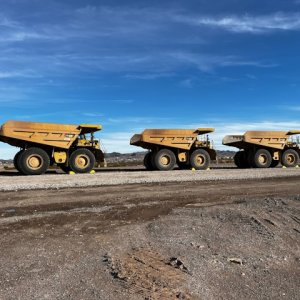The Right of Indigenous Communities to Prior Consultation

STORY INLINE POST
The internationalization of human rights has given rise to the broad protection of indigenous communities and their members. One of the rights that has been developed the most and that further protects the interests of these communities is the right to prior consultation. This right entails a consultation that must be performed with indigenous communities, whereby these communities, with the participation of their duly recognized members, approve or reject the execution of projects that are intended to be carried out on their territory, and that will have a direct impact on the territory in which they are settled.
As a result of the constant progress in the human rights field, as of today, the right to prior consultation is enshrined in Article 2 of the Mexican Political Constitution, as well as in several international treaties, such as Convention 169 of the International Labour Organization and the United Nations Declaration on the Rights of Indigenous Communities.
It should also be mentioned that the territories where indigenous communities are settled do not simply represent a piece of land but hold a profound spiritual and ancestral value for communities due to their culture, customs, and beliefs. In this regard, Mexico’s federal courts have ruled that “the bonds between indigenous communities and their lands are not reduced to mere property, production or exploitation, but rather hold a profound spiritual, traditional and sustainability-based value, in connection with their beliefs and customs.”
On the other hand, the mining industry, despite being a major source of income for our country’s economy and an important generator of jobs, despite its rigorous regulations, can eventually become invasive to the territories where indigenous communities are settled due to the very nature of this essential activity. Even though several international, legal instruments recognize the right to prior consultation, nowadays, in Mexico there are no express regulations that establish the groundwork and mechanisms to properly exercise this right, nor has a specific procedure to conduct a consultation been established. There are only general grounds for such a purpose.
The result is uncertainty for both indigenous communities, who are not being properly consulted prior to the development of extractive projects, and the mining companies, as they also lack the legal mechanisms to ensure the protection of the rights of indigenous communities, and therefore, unwittingly can infringe the rights of these communities. Subsequently, they run the risk of being sanctioned. They could even suffer the cancellation of mining concession titles.
Hence, it is essential that the Congress of the Union, which is the competent authority to legislate in Mexico, issue as soon as possible the appropriate law that regulates the complete procedure that must be followed to properly carry out a prior consultation, as well as the cases in which its deployment is mandatory.
Arising from the international instruments previously mentioned, as well as from jurisprudential criteria issued by the Supreme Court of Mexico, the legislation that must be issued must consider these recommendations:
- Although it may seem obvious, the consultation of indigenous communities must be performed prior to the start of the intended project. The aforesaid to opportunely incorporate eventual modifications to the project that may arise as a result of the consultation.
- The consultation must not be limited to a simple “notice” given to the communities; instead, it must be ensured that a true dialogue is held between both parties for communities to express their interests and concerns, as well as to give them the opportunity to formulate and solve all and each of the questions that may arise in connection with the project. Similarly, the consultation must be in good faith, always fostering trust between both parties.
- The consultation procedure must be transparent and public to ensure legal security and certainty of indigenous communities.
- The creation of a technical body whose functions, among others, must be to verify the projects submitted by the mining companies and the prior consultation procedure held by such companies, as well as to provide professional advice to the communities at any moment, so both parties find themselves on equal ground during the consultation procedure.
Indigenous communities must, at all times, be informed of the projects that are being carried out or that are intended to be carried out on the territories where they are settled. The cultural and historical heritage of the communities must be considered at any given phase of the mining projects, not overlooking the deep spiritual value that those territories hold for them, as the above would imply ignoring the cultural plurality of our nation enshrined in the aforementioned Article 2 of our Political Constitution.
To accomplish the above, mining companies require an accurate and complete legislation that allows them to properly carry out prior consultations, since through it, indigenous communities may approve the development of socially responsible mining projects, which would allow mining companies not only to perform extractive activities, but also guarantee the needs and life quality of the surrounding communities, as well as provide them with basic services and protect the inhabitant flora and fauna.








 By Pablo Méndez | Managing Partner -
Mon, 12/20/2021 - 09:53
By Pablo Méndez | Managing Partner -
Mon, 12/20/2021 - 09:53
















